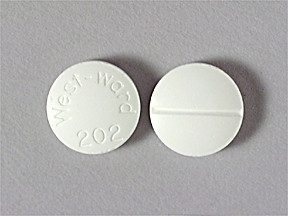CORTISONE - ORAL
PHONETIC PRONUNCIATION: (KOR-ti-sone)
COMMON BRAND NAME(S): Cortone
GENERIC NAME(S): cortisone acetate
Uses
USES: Cortisone is a corticosteroid hormone (glucocorticoid). It decreases your body's natural defensive response and reduces symptoms such as swelling and allergic-type reactions. This medication is used to treat conditions such as arthritis, blood/hormone/immune system disorders, allergic reactions, certain skin and eye conditions, breathing problems, and certain cancers.
How to use CORTISONE - ORAL
HOW TO USE: Take this medication by mouth with food or milk to prevent stomach upset. Take this medication by mouth with a full glass of water (8 ounces/240 milliliters) unless your doctor directs you otherwise. If you take this medication once daily, take it in the morning before 9 AM. If you are taking this medication every other day or on another schedule besides a daily one, it may help to mark your calendar with a reminder. The dosage and length of treatment are based on your medical condition and response to therapy. Use this medication regularly in order to get the most benefit from it. To help you remember, take it at the same time(s) each day. It is important to continue taking this medication even if you feel well. Follow the dosing schedule carefully, and take this medication exactly as prescribed. Do not stop taking this medication without consulting your doctor. Some conditions may become worse when this drug is suddenly stopped. Your dose may need to be gradually decreased. Inform your doctor if your condition persists or worsens.
Side Effects
Precautions
Interactions
Overdose
Images
Reviews
Faq for CORTISONE - ORAL
- Cortisone oral is commonly used to treat a variety of inflammatory conditions such as arthritis, asthma, allergies, and skin diseases.
- Cortisone oral belongs to a class of medications known as corticosteroids. It works by suppressing the immune system and reducing inflammation in the body.
- Common side effects of cortisone oral include increased appetite, weight gain, mood changes, difficulty sleeping, acne, and increased sweating.
- The effects of cortisone oral can vary depending on the individual and the condition being treated. Generally, it may take a few days to weeks for the medication to start working effectively.
- Cortisone oral may interact with certain medications, so it is important to inform your healthcare provider about all the medications you are taking, including over-the-counter drugs and supplements.
- Cortisone oral should be used with caution during pregnancy and breastfeeding. It is important to consult with a healthcare professional to assess the potential risks and benefits.
- Cortisone oral should not be stopped abruptly without consulting a healthcare professional. It is usually tapered off gradually to avoid potential withdrawal symptoms.
- Prolonged use of cortisone oral can have various long-term effects, including weakened immune system, osteoporosis, high blood pressure, and glucose intolerance. Regular monitoring by a healthcare professional is important.
- If you miss a dose of cortisone oral, take it as soon as you remember. However, if it is close to the time for your next dose, skip the missed dose and resume your regular dosing schedule. Do not double the dose.
Disclaimer
IMPORTANT: HOW TO USE THIS INFORMATION: This is a summary and does NOT have all possible information about this product. This information does not assure that this product is safe, effective, or appropriate for you. This information is not individual medical advice and does not substitute for the advice of your health care professional. Always ask your health care professional for complete information about this product and your specific health needs.

No Reviews Yet